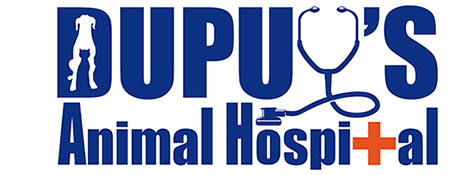Library
-
Your veterinarian may prescribe rectal medication if your pet is unable to swallow oral medications or if a specific required medication cannot be effectively absorbed with oral delivery. The rectal tissues contain large numbers of blood vessels very close to their surface, which means that medications delivered to this area are rapidly absorbed into the bloodstream. Rectal medication is most commonly used to treat seizures.
-
Medicated shampoos may be prescribed for a variety of skin conditions. These baths should be performed in a comfortably warm area, using lukewarm water. Medicated shampoo should be applied to a clean, wet coat, so start by thoroughly rinsing your dog with lukewarm water. Shampoo should be worked into the coat thoroughly and allowed to sit for 10 minutes before rinsing unless directed otherwise by your veterinarian.
-
The iliopsoas is an important core muscle. Injury can occur due to trauma, but it is usually caused by chronic stress. Signs that your dog has a painful iliopsoas can include reduced performance (if a sporting dog), very subtle weight-shifting away from the affected side when standing, or an obvious limp. The initial treatment for acute iliopsoas injuries is activity restriction and pain control for 10-14 days. Rehabilitation therapy can also help.
-
Imidocarb dipropionate is an injectable medication that is administered by a veterinarian to treat babesiosis in dogs. It is also used off-label to treat other protozoal infections in dogs, cats, and horses. Most common side effects include mild drooling, tearing, vomiting, or nasal drip. Do not use in pets with exposure to cholinesterase-inhibiting drugs, pesticides, or chemicals. If a negative reaction occurs, please call your veterinary office.
-
Infertility in a female dog is defined as the inability to conceive and deliver viable puppies, even when mated multiple times with a known fertile male surrounding the time of ovulation. This handout outlines the varying causes of infertility in female dogs and how they may be diagnosed and treated.
-
This handout discusses the anatomy of the dog’s ear canal, how to safely clean your dog’s ears to prevent ear infections, and how to apply topical ear medications if needed.
-
This handout outlines the use of disease-modifying osteoarthritis drugs (DMOADs) in dogs, specifically the use of polysulfated glycosaminoglycans (PSGAGs). The rationale for their use, and their dosing regimen are explained.
-
Lymphoma is a cancer of the lymph nodes and lymphatic system. This cancer may be localized to one particular region, or may spread throughout the entire body. Lymphoma is a relatively common cancer, accounting for 15-20% of new cancer diagnoses in dogs. The prognosis for lymphoma varies, depending on various characteristics that can only be determined by specialized testing.
-
Mastitis is a term used to describe inflammation of a mammary gland. In most cases, mastitis is caused by a bacterial infection. Trauma to the mammary gland, or prolonged periods of milk accumulation without milk removal, can lead to inflammation within the mammary gland. Most dogs with mastitis can be treated on an outpatient basis with oral antibiotics and pain medications, though severe cases may require hospitalization or surgery.
-
Silymarin is an over-the-counter nutritional supplement that is used off-label and is given by mouth to treat liver and cancer conditions. Give as directed. Side effects are uncommon but may include vomiting or diarrhea. Do not use it in pets that are allergic to it. If a negative reaction occurs, please call the veterinary office.


